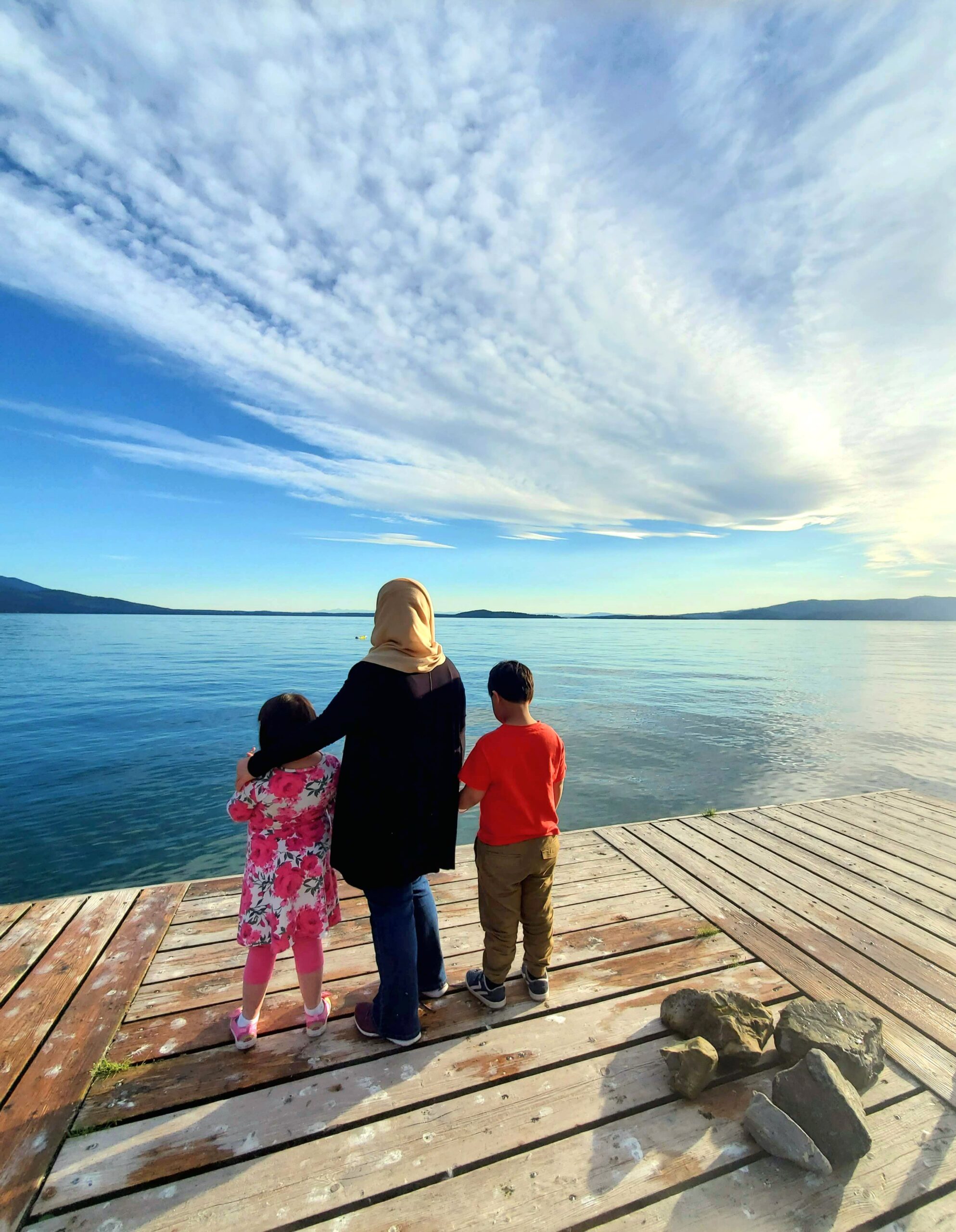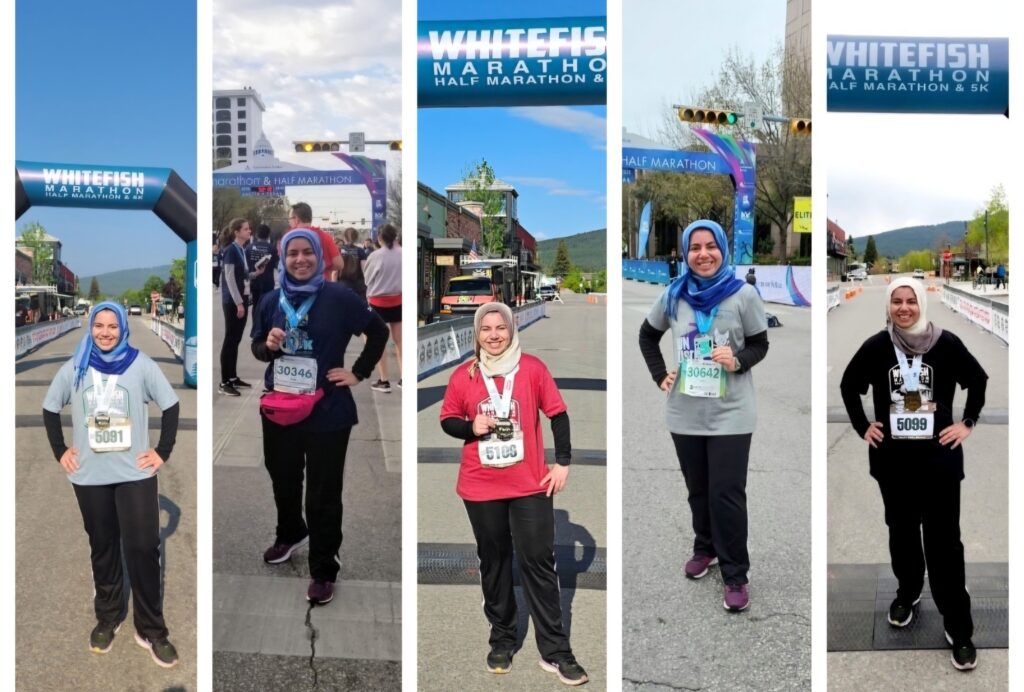Diagnosis Represents a Major Shift in Parents’ Expectations
By Sadia Waheed
July/Aug 2024

Twelve years ago, a few hours after my son’s birth, his pediatrician walked in and uttered the words I had never imagined hearing. Hearing the diagnosis of Down syndrome, and a long list of things he may never be able to do, was the hardest moment of my life as a mother.
Having to go through this experience twice had a very strong impact upon my mental health. When my daughter was born with the same diagnosis, I knew I wasn’t ready emotionally. However, I wanted to welcome her with a heart full of gratitude, a heart that valued every life no matter how it conformed to society’s standards.
Both children spent several weeks in the neonatal intensive care unit (NICU) healing their bodies while I had to come home to an empty crib every night. The first few years of their lives were filled with countless appointments, therapies and surgeries. There were many moments when I couldn’t keep up with their unique challenges. It took years of hard work and sacrifice to get to where we are today. Not a moment goes by without feeling grateful for all the blessings that came our way during this journey. We all plan and picture our life a certain way, but we forget that God is the best of all planners.
Your child’s diagnosis represents a major shift in the expectations you may have had for them. An unending roller coaster ride of questions about their quality of life and the “what ifs” clouded my thought process. It took every ounce of patience in me to accept a life for which I wasn’t prepared.
Down syndrome targets every aspect of a child’s development, for it affects every cell in his/her body. It challenges physical and intellectual development. As a mother, I wished to hide my children’s distinct physical features, which made their diagnosis obvious. I wanted everyone to see them without the labels attached, to give them a chance before making assumptions. With time, I realized that Down syndrome doesn’t define them, that it’s just a small part of them. There is a special spark in their nature that attracts kindness and love wherever they go.
Move to Montana
My husband and I had to make many life-altering decisions for our children’s benefit by stepping into an unknown world, for they rely heavily on various therapy services to succeed in life. Once Covid started in 2020, all therapy services were halted, and our children started regressing. There was no end in sight for months. After searching for improved support and better opportunities, we packed a few bags and moved from Texas to Whitefish, Mont. — a small town we had never heard of but reputed to have good special education services. When one door closes, another opens with God’s endless mercy. Four years later, it became apparent to us that this was the best decision because it has benefited our children immensely.
The years our children spend in an inclusive public-school setting are the main years of their lives, a time when they can learn and make friends. Nothing is guaranteed after school ends, for they might be unable to go to college or hold jobs. Therefore, the thought of giving them the best school years keeps me searching for better options. Migrating for our children’s wellbeing and relying only on God’s help to secure a future for them ended up being the best decision for them.
Despite the many challenges that come with parenting two children with disabilities, our family life is filled with many memorable moments of love and joy. Our children continue to make us proud with their hard work and resilience. They compete in Special Olympics skiing, bowling, and track and field competitions. All these sports require them to work twice as hard as their peers. They spend months on acquiring some simple life skills that many others take for granted. They have taught us to slow down and enjoy life’s little blessings.
Every passing year is a realization of life’s limited possibilities for them as adults. I have often felt terrified of what their future might be in this ableist world that struggles to value the contributions of the disabled.
Societal Stigma
As a mother of two children with Down syndrome, I was introduced to a world where disability is viewed through a lens of stigma and shame. My children are a reminder from my Creator of His perfection and decree. Down syndrome is a chromosomal disorder that can happen to anybody, for it occurs randomly. Despite being non-hereditary, it’s often blamed on the parents.
Sadly, many Muslims equate disability with divine punishment or lack of faith, and thus share an underlying assumption that our children are burdens or a reflection of our failures. Parents often find themselves grappling not only with the practical challenges of raising their disabled child, but also with the emotional toll of societal judgment. This stigma leads many to live isolated lives to shield their child from unwanted stares and comments.
The fear of the unknown and the uncertainty of life that comes with a diagnosis also goes hand in hand with the joy and excitement of raising our uniquely talented children. As we are welcomed into an unfamiliar territory with limited possibilities, we become our children’s relentless advocates, protectors and champions. In the years since their births, our family has experienced the true happiness of living in the moment while cherishing all of life’s blessings. Both our children have beautiful personalities that impact all those around them positively, bring smiles to their faces and warmth to people’s hearts. Our children have taught us the meaning of unconditional love, acceptance, patience, mindfulness and gratitude for everything in life.
Finding Purpose

The challenges my children face while navigating a world that isn’t designed for the disabled has opened my eyes to the broader needs of the disability community. My children are an inspiration behind an important mission that I started after realizing the need for empowering the underprivileged disability community in Pakistan. We started the US Chapter for Rising Sun Institute in Pakistan, which provides resources and therapy services to the disabled.
As a lifelong caregiver to two with disabilities, it’s my goal to be physically active and dedicate time to fitness and overall wellbeing. For the last 8 years, I have run to fundraise for the disability community. Running has become a meaningful tradition for me to channel my love and advocacy into something tangible. Every step honors my children’s resilience and symbolizes the strides we need to make towards a more inclusive society.
I’ve often felt heartbroken at the thought of what our future might look like as I age, and my kids get older. But I’ve learned and realized that there is nothing I can do this in this regard. I can only provide them with opportunities and do my best to equip them with the skills they need to succeed. I leave the rest to God. The Creator, the artist and author of their lives, has written what’s best for them. We love our children unconditionally, but also struggle with the reality of a life we never imagined.
My children have redefined motherhood for me. I’m no longer the grieving mother. The stares and whispers, along with the discomfort of our judgmental society, doesn’t bother me anymore. I’m proud of how far my children have come. Worries about their future often keep me awake, but I also know that their Creator loves them more.
Do’s and Don’ts When Interacting With Special Needs Families
• Early in the diagnosis, allow parents to acknowledge and honor their feelings without judgment. It’s only human to grieve the loss of your expectations.
• Never ask why their child has special needs.
• Don’t offer unsolicited advice and homemade concoctions to “fix” the issue.
• Create a more inclusive environment for individuals with disabilities to help them feel welcomed and valued. Remember to invite special needs children to your birthday parties and events.
• Rally for your mosque to have ramps, disabled parking and accessible bathrooms, along with recreational facilities in the community.
• Educate the congregation about disabilities in Friday sermons. Have a special needs child present an award or recite a surah at your next fundraiser.
• Children learn by example, so modeling the right behavior without staring or whispering about a person’s disability is important.
• Emphasize similarities rather than differences and make sure to use the right language. Have a zero-tolerance policy for using derogatory or offensive terms.
• Set up a meal train when a family is going through a difficult diagnosis or treatment.
• Employ special needs youth and adults in local businesses wherever possible. Help direct other families toward internships or volunteering opportunities.
Sadia Waheed, a disability advocate and a biotech professional, is dedicated to breaking down barriers, challenging stereotypes and creating a more equitable and inclusive future for all.
Tell us what you thought by joining our Facebook community. You can also send comments and story pitches to [email protected]. Islamic Horizons does not publish unsolicited material.
